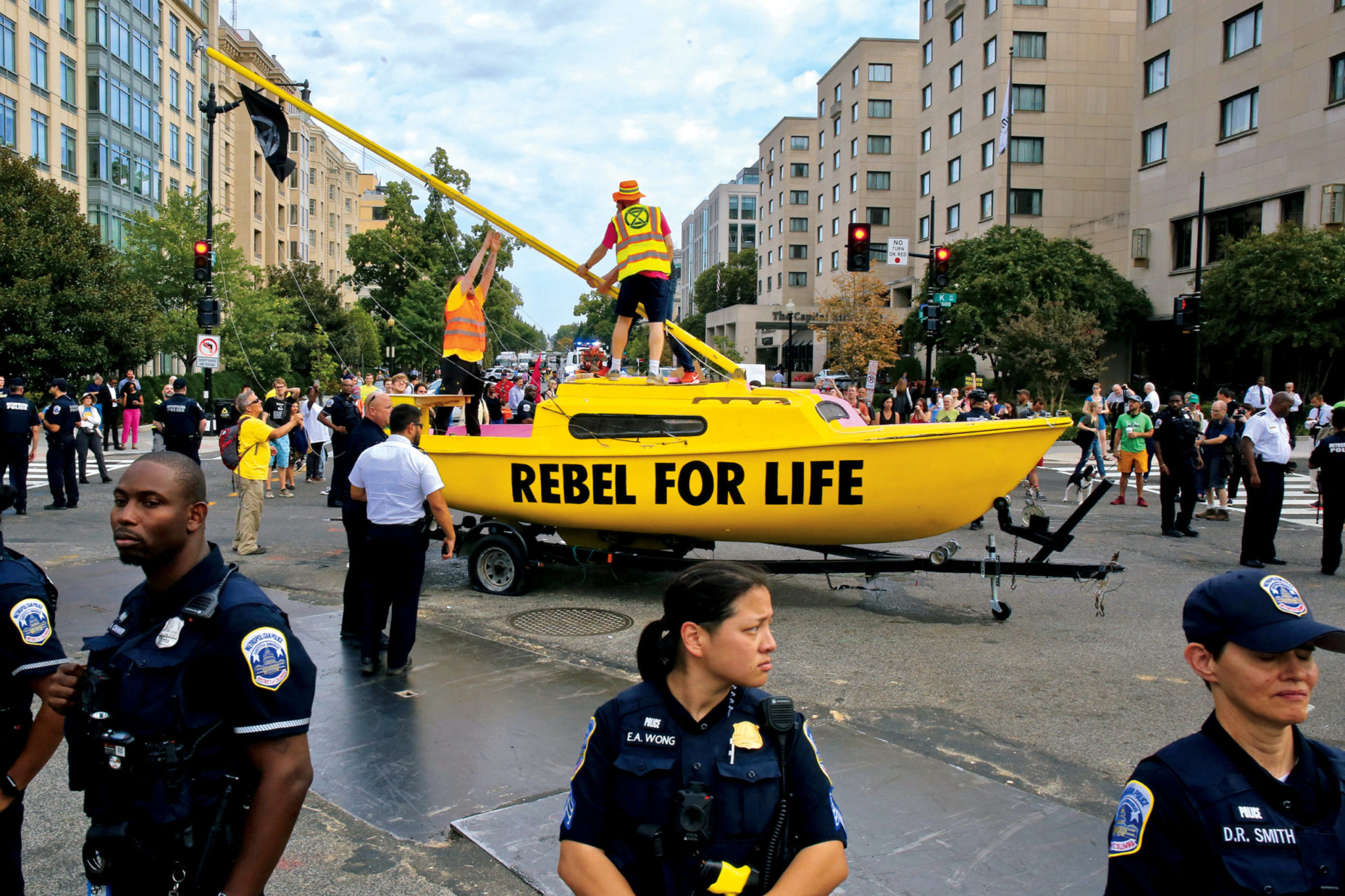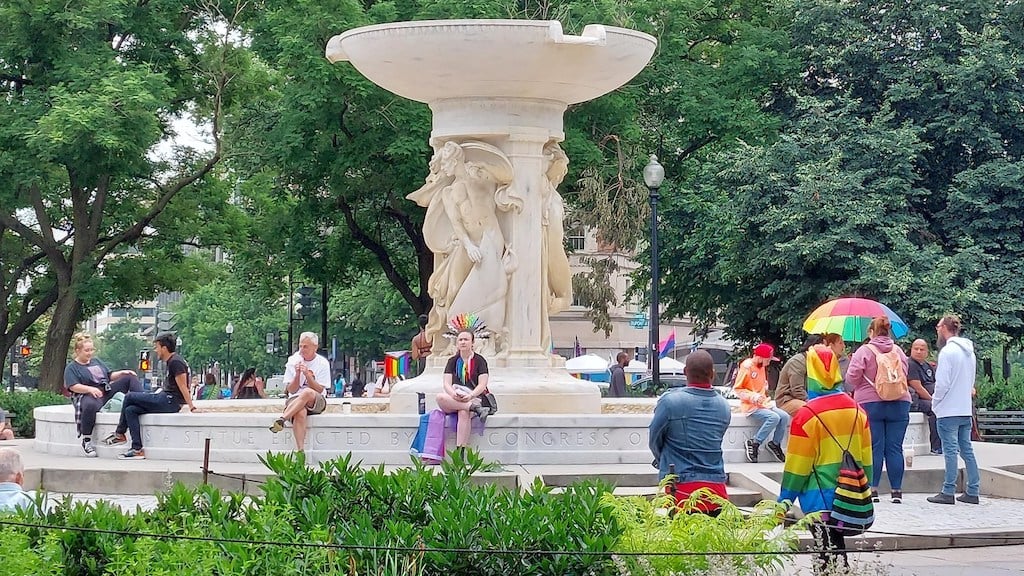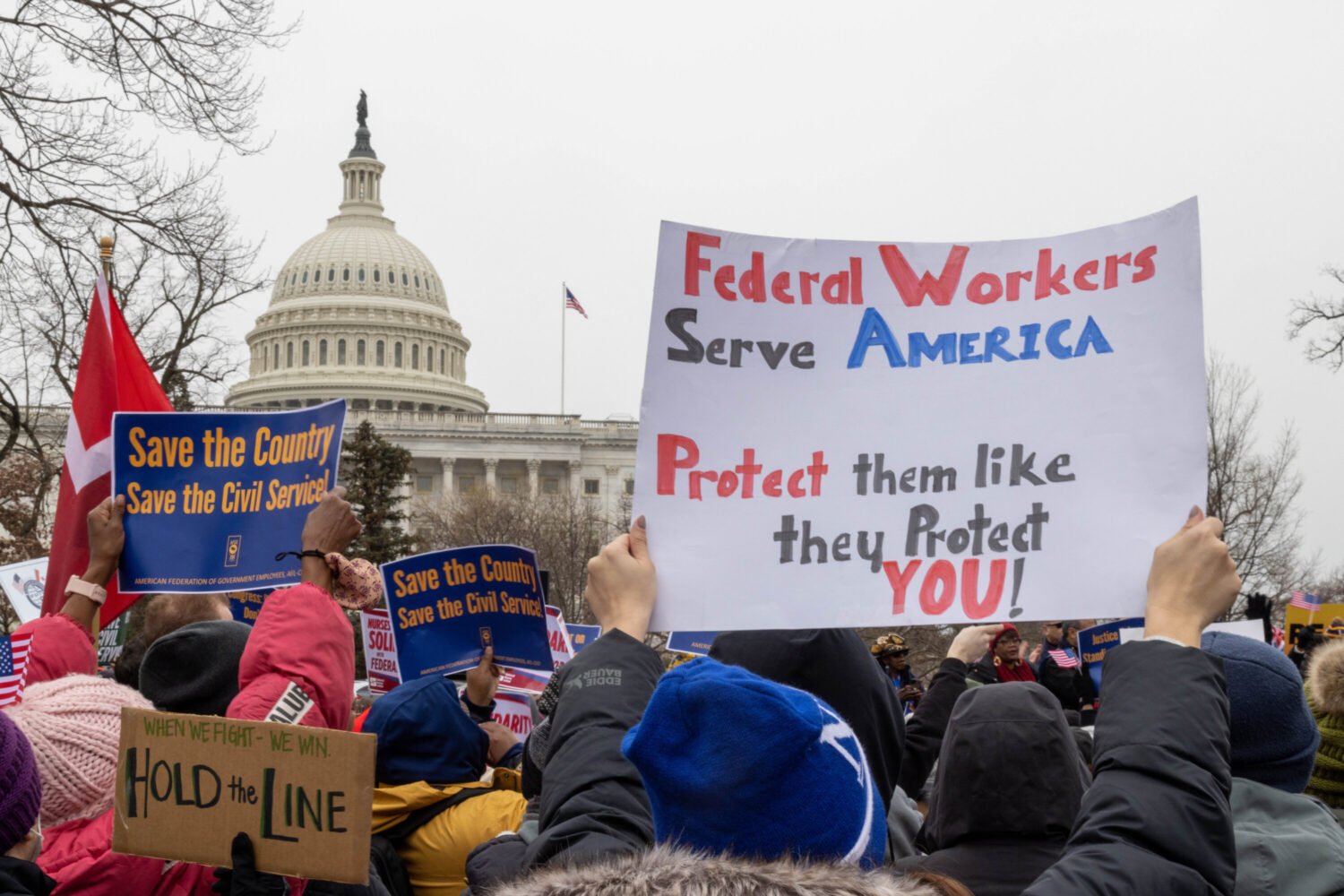On the morning of September 23, four activists chained themselves to a pink-and-yellow sailboat that had been placed in front of traffic at the intersection of 16th and K, Northwest. The stunt was part of a broader effort that day—branded Shut Down DC—to disrupt downtown Washington and demand action to deal with the climate crisis. Thirty-two people were arrested around the city, and plenty of commutes were affected—which was exactly the point.
Grumbling soon ensued on Twitter and in office Slack exchanges, with workers complaining about the inconvenience. Didn’t these protesters know that locals were just trying to get to their jobs? Lots of people who agreed with the cause took issue with the activists’ tactics. Nonetheless, four days later the group did it again, staging another round of blockages.
Meanwhile, the National Park Service had also lost patience with protests, lately toying with the idea of charging a fee to help recover costs associated with DC demonstrations. The Park Service processes the permits and provides security for about 750 political events on the Mall each year, amounting to hundreds of thousands of dollars in annual costs, an expense that has been rising due to an uptick in activism.
Now comes word that the Park Service won’t be moving forward with the proposal after all. That’s good: It seemed like an obviously terrible idea, since all citizens have the right to express themselves, not just those who can afford to pay for it. But tension over public protest—whether government restrictions or dissatisfaction from the public—is about more than just free speech. Part of what makes DC such a vital, exciting place is the very thing that attracts this kind of disruption in the first place.
The fact that people come to town to engage with their government is a benefit of living here, not a cost. Demonstrators who block the streets are just the flip side of tourists who clog the sidewalks—and inject millions into our local economy. While it’s understandable that some commuters were put out by the climate protesters, the reality is that we have the privilege of living in the primary place where people come to do this kind of thing. Nobody, after all, is dropping a protest boat into the middle of downtown Des Moines.
So next time you find yourself irritated by some expression of activism, consider the alternatives. We could live in a society where free speech is restricted by the government, as the Park Service had been contemplating. We could reside in a city where protest isn’t part of daily life. Instead, Washington is a place where speaking out is entrenched in the local culture, whether it’s LGBTQ-rights advocates getting arrested in front of the Supreme Court, anti-abortion demonstrators gathering for the March for Life, or #DontMuteDC supporters fighting to preserve our area’s history. You could complain, sure. Or you could find a cause you agree with and join in.
A version of this article appears in the November 2019 issue of Washingtonian.



















